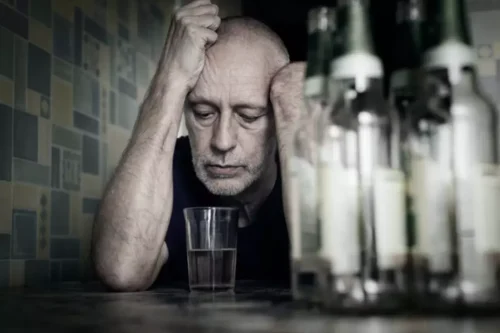
It can lock you into destructive and harmful patterns of behavior. Accepting the partner has a problem and seeking help based on this is one way of acknowledging your needs. Love addiction is not classified as a mental illness because it’s not yet recognized in the Diagnostic and Statistical Manual of Mental Disorders, 5th edition (DSM-5).

Involving Partners in Treatment

Whether love addiction should be classified as an actual mental health condition is up for debate. In fact, the “Diagnostic Manual of Mental Health Disorders” doesn’t recognize it as one. However, many experts feel there’s enough evidence to consider it as an independent mental disorder.

What Is Love Addiction and Can You Have Withdrawals From a Person?
Also, an Internet search for “love addiction support groups near me” may give you additional options for support. Here are a few possible treatments for love addiction that may support your recovery. However, scientific evidence suggests that problematic feelings about love may cause a similar response in the brain as substance use disorder (SUD) and addiction. “’Love addiction’ is a process ‘addiction,’ lifestyle ‘addiction,’ or a soft ‘addiction,’” says Sherry Gaba, LCSW, a psychotherapist and love addiction specialist in Southern California.
- Researchers explain love addiction is related to these other disorders because they have similar cycles of emotional highs and lows, longing, and the extreme behaviors that can come as a result.
- Some research suggests romantic love could involve a withdrawal-like experience.
- Spending time with friends and family can help you prioritize other strong relationships.
- We publish material that is researched, cited, edited and reviewed by licensed medical professionals.
- There’s no precise definition for love addiction because it’s not an actual condition as much as it is an abstract concept.
Unpacking the Notion of Love Addiction
Addictive behaviors around love, sex, and relationships can be hard to overcome on your own. If you’re working to address compulsive love or relationship behaviors, awareness of how these behaviors affect you is an essential first step. “With all addictions or comfort-seeking behaviors, an obsessive type of focus can begin to take over,” Stringer says. “You might find yourself in a revolving door of relationships, with no down time in between,” explains Melissa Stringer, a marriage and family therapist in Sunnyvale, Texas. The addictive qualities of love can also come into play during a breakup. A 2010 study examined brain activity in 15 people who had recently experienced relationship rejection.
Healing from Love Addiction
Instead, it’s your responsibility to communicate and uphold your boundaries, even if others don’t necessarily understand or agree with them. Ultimately, the goal is to honor your boundaries with self-respect and respect for others, rather than abandoning them to please others. While clear communication may feel uncomfortable or vulnerable initially, regular practice can turn this into an easier pursuit, all in service of fostering healthy love and relationships. Such relationships result in full absorption or immersion, and you might longer lose sight of your life outside of the relationship. This involvement, i.e., ride-or-die behavior, can lead to dysfunction, manipulation, or toxic, abusive behavior. Subsequently, you may abandon hobbies, friends, values, and your sense of worth to stay connected to your partner.
- These include brain chemistry, genetics, upbringing, and the relationships you see around you.
- It’s a common misconception that all an addict needs is to detox and get the substance out of their system, and then they’ll be able to stop using.
- After all, we need to connect with others to continue our existence, so we want — even crave — these bonds throughout our lives.
- In particular, she’s committed to helping decrease stigma around mental health issues.
- One of the key characteristics of sobriety is that we come back to and be with ourselves, no matter how uncomfortable that experience might be at first.
- You might realize that you’ve been avoiding communicating because of fear or anxiety — but having an open dialogue about your feelings can ultimately bring clarity to your relationship.
- They can also provide a safe space to discuss their feelings and experiences, and to receive emotional support from others who are going through similar experiences.
- You can also learn to focus on your individual needs and reconnect with yourself by learning to practice self-love.
- No, according to the official clinical definition of addiction.
To provide insight to any of these questions, it’s important to understand addiction and what it does to relationships. Love addicts consciously want intimacy, but cant tolerate healthy closeness, so they must unconsciously choose a partner who cannot be intimate in a healthy way. But intensity is not the same as intimacy; it is a fantasy that cannot be sustained. So, don’t waste any more time than you should stay in a relationship that isn’t working. I can promise you, eventually it will end and you will have wasted time you could have spent finding someone who loves you. They do so because they don’t believe themselves worthy of happiness.
About a third of people with a diagnosable mental health condition, and about half of those with a severe mental health condition, have some form of substance use disorder, research shows us. Nurturing healthy self-worth is important to overcome love addiction, which stems from unresolved emotional loving an addict trauma, feelings of unworthiness, shame, and emptiness. Consistently caring for yourself is vital to building a positive self-image and communicating effectively while maintaining healthy boundaries. The first step is recognizing and tending to your physical, mental, emotional, and spiritual needs.

- Similarly, when our emphasis is on how our partner makes us feel or how he or she feels about us, our “love” is based on a self-centered, codependent need.
- You don’t need a diagnosis of love addiction or love addiction withdrawal to address concerning or unwanted relationship patterns.
- By understanding these complexities, couples can work together to rebuild their emotional connection and create a healthier, more loving relationship.
- It only leads to frustration and heartache when you’re in a relationship with a drug addict.
- They also need to learn about their particular brand of dysfunction when it comes to their love addiction.